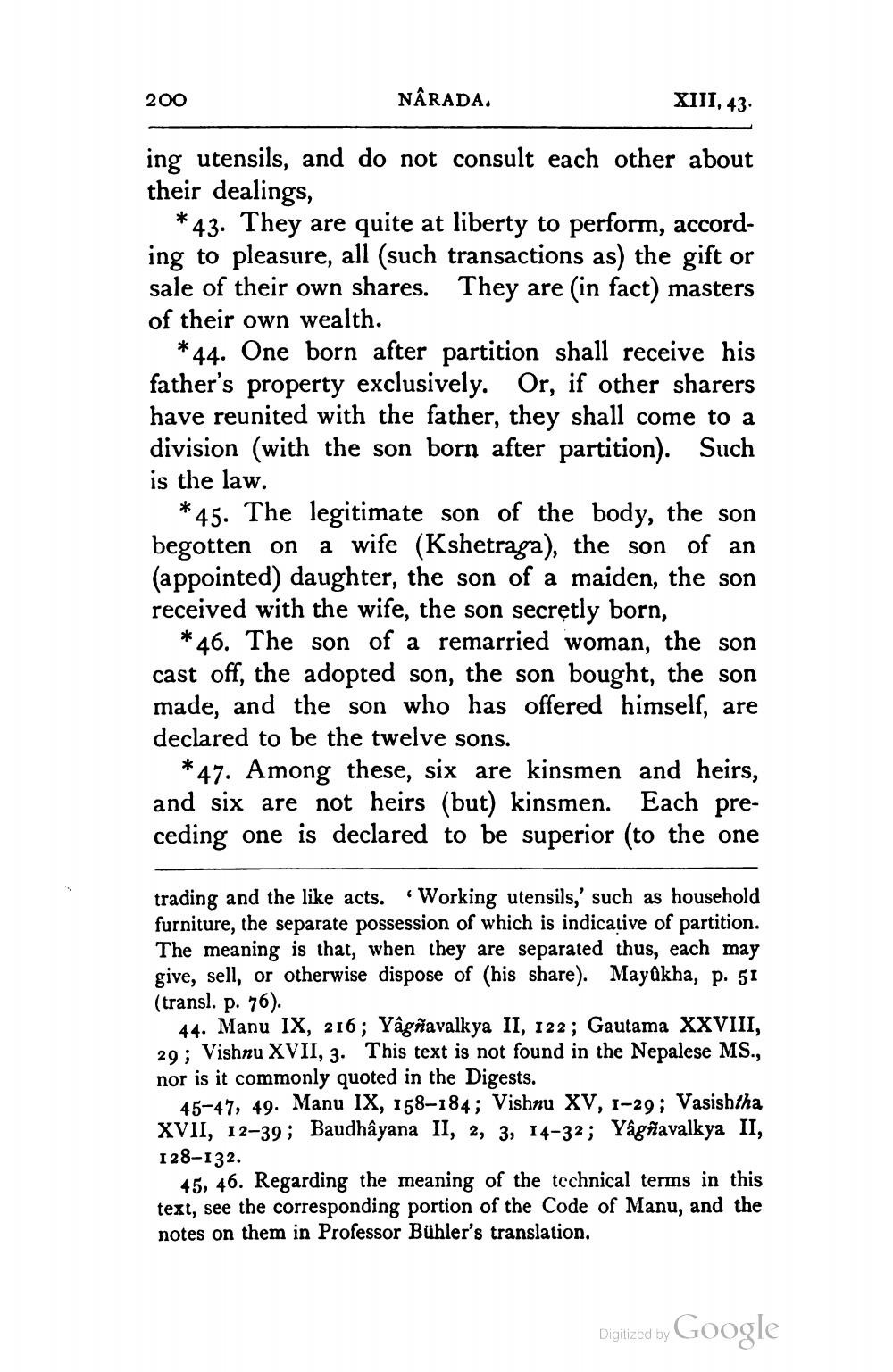________________
200
NÂRADA.
XIII, 43.
ing utensils, and do not consult each other about their dealings,
*43. They are quite at liberty to perform, according to pleasure, all (such transactions as) the gift or sale of their own shares. They are in fact) masters of their own wealth.
* 44. One born after partition shall receive his father's property exclusively. Or, if other sharers have reunited with the father, they shall come to a division (with the son born after partition). Such is the law.
*45. The legitimate son of the body, the son begotten on a wife (Kshetraga), the son of an (appointed) daughter, the son of a maiden, the son received with the wife, the son secretly born,
*46. The son of a remarried woman, the son cast off, the adopted son, the son bought, the son made, and the son who has offered himself, are declared to be the twelve sons.
*47. Among these, six are kinsmen and heirs, and six are not heirs (but) kinsmen. Each preceding one is declared to be superior (to the one
trading and the like acts. Working utensils,' such as household furniture, the separate possession of which is indicative of partition. The meaning is that, when they are separated thus, each may give, sell, or otherwise dispose of (his share). Mayûkha, p. 51 (transl. p. 76).
44. Manu IX, 216; Yâgñavalkya II, 122; Gautama XXVIII, 29; Vishnu XVII, 3. This text is not found in the Nepalese MS., nor is it commonly quoted in the Digests.
45-47, 49. Manu IX, 158-184; Vishnu XV, 1-29; Vasishtha XVII, 12-39; Baudhayana II, 2, 3, 14-32; Yâgñavalkya II, 128-132.
45, 46. Regarding the meaning of the technical terms in this text, see the corresponding portion of the Code of Manu, and the notes on them in Professor Bühler's translation.
Digitized by Google




